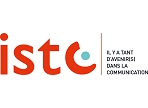Establishment
Language of instruction
French, English
Teaching content
UE15
Training officer(s)
E.JOVELIN
Stakeholder(s)
E.JOVELIN
Présentation
Prerequisite
Having followed the 2nd-year sociology introduction course.
Goal
- Studying and understanding how organisations really work, and the consequences on the daily work.
- Highlighting the social structure of a business (collective capacity, complex relations, power relations).
- Learning the basic concepts of organisational strategic analysis.
- Implementing the organisational investigation methodology (basics).
- Applying this reasoning to the organisation's social challenges: culture, identity, participation, decision-making and change issues.
This course develops the following professional skills:
- Understanding, analysing and interpreting one’s environment (general knowledge), including the global context.
- Designing and presenting a through-the-line communication strategy: drawing it up, presenting and defending it (being able to justify the choices made).
- Applying “principles” to every action: diligence, autonomy, interdisciplinarity, innovation, inventiveness.
- Being able to lead a team and to manage projects from start to finish, including in an international context.
- Highlighting the social structure of a business (collective capacity, complex relations, power relations).
- Learning the basic concepts of organisational strategic analysis.
- Implementing the organisational investigation methodology (basics).
- Applying this reasoning to the organisation's social challenges: culture, identity, participation, decision-making and change issues.
This course develops the following professional skills:
- Understanding, analysing and interpreting one’s environment (general knowledge), including the global context.
- Designing and presenting a through-the-line communication strategy: drawing it up, presenting and defending it (being able to justify the choices made).
- Applying “principles” to every action: diligence, autonomy, interdisciplinarity, innovation, inventiveness.
- Being able to lead a team and to manage projects from start to finish, including in an international context.
Presentation
Chapter 1: The classical school.
1. Postulates and principles.
2. Classical school of management: Fayol, Weber.
3. Scientific management movement: Taylor, Ford.
Chapter 2: Human relations movement.
1. The precursor: Elton Mayo.
2. Groups: Jacob Levy Moreno.
3. Group dynamics: Kurt Lewin, Rensis Likert.
4. Synthesis: Blake & Mouton.
5. Work motivation theories: Maslow, Herzberg, Mac Gregor.
Chapter 3: Systems theory applied to businesses.
1. General system theory: Ludwig Von Bertalanffy.
2. Complex systems: Kenneth Boulding.
Chapter 4: Social systems school.
1. Decision-making theories: Simon, Cyert et March.
2. Sociotechnical analysis: Emery et Trist.
Chapter 5: Contingency theories.
1. Configuration theory: Mintzberg.
Chapter 6: Strategic analysis.
1. Strategic analysis and power: Crozier & Friedberg.
2. Regulation school: Reynaud.
Chapter 7: Sociology of innovation.
1. Network & translation: Callon, Latour, Lazega.
2. Notion of project: Boltanski, Chiapello.
1. Postulates and principles.
2. Classical school of management: Fayol, Weber.
3. Scientific management movement: Taylor, Ford.
Chapter 2: Human relations movement.
1. The precursor: Elton Mayo.
2. Groups: Jacob Levy Moreno.
3. Group dynamics: Kurt Lewin, Rensis Likert.
4. Synthesis: Blake & Mouton.
5. Work motivation theories: Maslow, Herzberg, Mac Gregor.
Chapter 3: Systems theory applied to businesses.
1. General system theory: Ludwig Von Bertalanffy.
2. Complex systems: Kenneth Boulding.
Chapter 4: Social systems school.
1. Decision-making theories: Simon, Cyert et March.
2. Sociotechnical analysis: Emery et Trist.
Chapter 5: Contingency theories.
1. Configuration theory: Mintzberg.
Chapter 6: Strategic analysis.
1. Strategic analysis and power: Crozier & Friedberg.
2. Regulation school: Reynaud.
Chapter 7: Sociology of innovation.
1. Network & translation: Callon, Latour, Lazega.
2. Notion of project: Boltanski, Chiapello.
Modalités
Organization
| Type | Amount of time | Comment | |
|---|---|---|---|
| Face to face | |||
| 15,00 | |||
| Independent study | |||
| Travail personnel indicatif | 15,00 | Lecture de textes pour préparer le cours. | |
| Overall student workload | 30,00 | ||
Evaluation
| Control type | Duration | Amount | Weighting |
|---|---|---|---|
| Continuous assessment | |||
| 1,00 | 1 | 40,00 | |
| Final Exam | |||
| 1,30 | 1 | 60,00 | |
| TOTAL | 100,00 | ||
Ressources
Bibliography
Les nouvelles approches sociologiques des organisations - AMBLARD H., BERNOUX P., et al. / Seuil, Paris, 2005
La sociologie des organisations - BERNOUX P / Seuil, Paris, 1985
Le nouvel esprit du capitalisme - BOLTANSKI L., CHIAPELLO E. / Gallimard, Paris, 1999
De la justification. Les économies de la grandeur. - BOLTANSKI L., THEVENOT Laurent . / Gallimard, Paris, 1991
« Eléments pour une sociologie de la traduction : La domestication des coquilles Saint-Jacques et des marins-pêcheurs dans la baie de Saint-Brieuc » - CALLON M
« Une influence limitée sur les économistes », - FAVEREAU O
100 ans de management : un siècle de management à travers les écrits - JARROSSON B. / Dunod, Paris, 2000
La sociologie et l’intervention : Enjeux et perspectives - VRANCKEN D., KUTY O. / Bruxelles, De Boeck, 2001
La sociologie des organisations - BERNOUX P / Seuil, Paris, 1985
Le nouvel esprit du capitalisme - BOLTANSKI L., CHIAPELLO E. / Gallimard, Paris, 1999
De la justification. Les économies de la grandeur. - BOLTANSKI L., THEVENOT Laurent . / Gallimard, Paris, 1991
« Eléments pour une sociologie de la traduction : La domestication des coquilles Saint-Jacques et des marins-pêcheurs dans la baie de Saint-Brieuc » - CALLON M
Dans "L’Année sociologique", n°36, 1986, P.169-208
L’acteur et le système. - CROZIER M., FRIEDBERG E. / Seuil, Paris, 1977« Une influence limitée sur les économistes », - FAVEREAU O
In " Revue française de gestion", n° 139, 2002/3-4, P. 203-211.
Initiation à la sociologie - GIACOBBI M., ROUX J.P / Hatier, Paris, 1990100 ans de management : un siècle de management à travers les écrits - JARROSSON B. / Dunod, Paris, 2000
La sociologie et l’intervention : Enjeux et perspectives - VRANCKEN D., KUTY O. / Bruxelles, De Boeck, 2001






